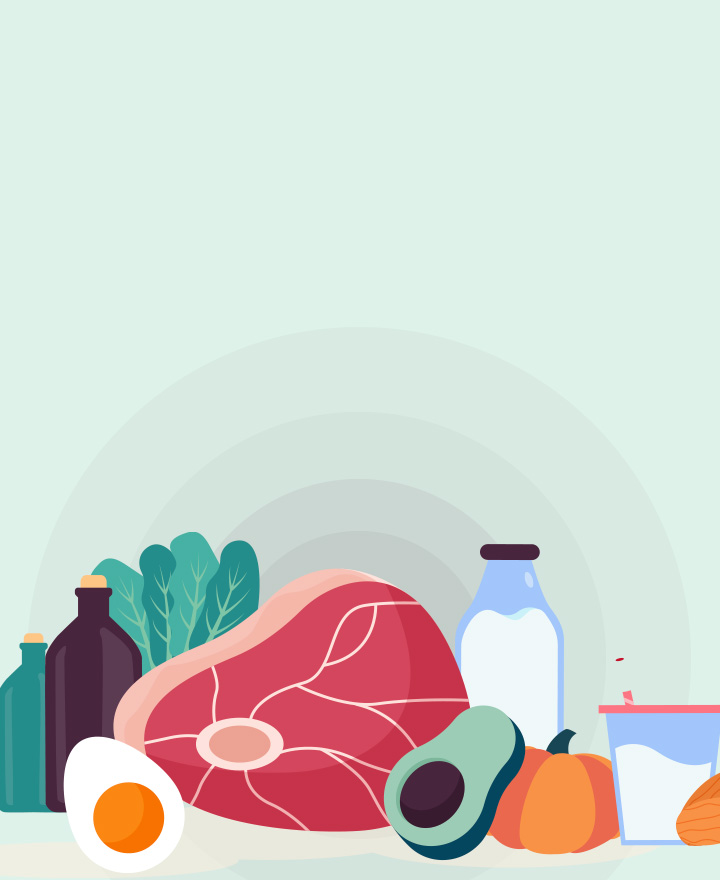

High Calorie Foods for Weight Gain
If you are looking to gain weight for multiple reasons, you should start consuming high-calorie foods at regular intervals. However, the key is to choose the right calorie-dense foods to increase weight in a healthy way. Consult your dietician for an appropriate diet plan including calorie-rich foods. Before you proceed to find the various options available of high-calorie foods for weight gain, it is important to understand the meaning of calories and daily calorie requirement of your body. Read on to know more.
What do you mean by Calories?
Calories are a unit of measurement for energy. They represent the amount of energy that food and beverages provide when consumed. The body uses this energy for various functions, such as maintaining body temperature, supporting physical activity, and facilitating metabolic processes.
Carbohydrates, proteins, nutrient-rich food, and fats are the main sources of calories, and you get these from the food you eat. In a normal, healthy diet, carbohydrates should contribute 45-65% of your daily calorie intake, protein 10-35%, and fats 20-35%.
The word ‘calorie’ can refer to both small calories (cal) and large calories (Cal or kcal). The latter one is more commonly used in food labelling.
One kilocalorie or Calorie = 1,000 small calories
Daily Calorie Requirement
So, how many calories do we need every day to live a healthy life? The daily caloric requirement to maintain a healthy life varies based on multiple factors including age, sex, weight, height, and activity level. Below, is the recommend calorie intake, separated by age and sex, from the Dietary Guideline for Americans.
| Age | Calories (males) |
| 16–18 | 2,400–3,200 |
| 19–20 | 2,600–3,000 |
| 21–35 | 2,400–3,000 |
| 36–40 | 2,400–2,800 |
| 41–55 | 2,200–2,800 |
| 61–75 | 2,000–2,600 |
| 76+ | 2,000–2,400 |
| Age | Calories (females) |
| 16-18 | 1,800-2,400 |
| 19-25 | 2,000-2,400 |
| 26-30 | 1,800-2,400 |
| 31-50 | 1,800-2,200 |
| 51-60 | 1,600-2,200 |
| 61+ | 1,600-2,000 |
High-calorie Foods to be Included
Here are some options of nutrient-dense, high -calorie foods for a healthy weight gain:
1. Whole Grains:
This includes oats, quinoa, brown rice, and whole grain bread, and they provide complex carbs and calories.
2. Lean Meats:
chicken, turkey,, and lean cuts of beefs offer protein and calories.
3. Avocados:
This fruit is rich in healthy fats and calories.
4. Nuts and Seeds:
This includes almonds, walnuts, chia seeds, and flaxseeds. They are calorie-dense and packed with healthy fats.
5. Dairy Products:
Include products like full-fat milk, cheese, and yogurt in your diet as they are high in calories and nutrients.
6. Nut Butters:
They are high in calories and protein. This includes peanut butter and almond butter among other nut butters.
7. Oils:
Olive oil, coconut oil, and other cooking oils add healthy fats and calories to meals.
8. Fatty Fish:
These are rich in both calories and omega-3 fatty acids. This includes salmon, mackerel, and sardines.
Note – Foods like chips, fried foods, pastries, aerated beverages, and sweets are also calorie-dense. However, it is better to avoid these unhealthy foods to avoid health complications in the future.
Conclusion
Knowing about high-calorie food items and choosing them properly to gain weight is very important. This will help you stay away from unhealthy foods and reduce your risk of unnecessary health issues later on.
One of the important components of our overall wellness is also being financially secured. Healthcare emergencies can happen any time, but a good health insurance policy can protect you from such uncertain situations. To know more about Wellness and other health related tips, visit the wellness corner.
Source: healthifyme.com, medicalnewstoday.com, ucsfhealth.org
Disclaimer: This blog provides general information and discussions about health and related subjects. The information and other content provided in this blog, website or in any linked materials are not intended and should not be considered, or used as a substitute for, medical advice, diagnosis or treatment. Kindly contact your Doctor before starting a new medicine or health regime.
Related Articles
The Importance of Maintaining Daily Calorie Requirement
13 Best Low-Calorie Foods to Satisfy Your Hunger
20 Foods You Should Eat Every Day for a Longer Life
20 foods that are high in vitamin A
What to Eat for Healthier Aging? Here's How Your Nutritional Needs Change as You Age
Published on October 7, 2024














 Health Insurance
Health Insurance  Travel Insurance
Travel Insurance  Car Insurance
Car Insurance  Cyber Insurance
Cyber Insurance  Critical Illness Insurance
Critical Illness Insurance
 Pet Insurance
Pet Insurance
 Bike/Two Wheeler Insurance
Bike/Two Wheeler Insurance  Home Insurance
Home Insurance  Third Party Vehicle Ins.
Third Party Vehicle Ins.  Tractor Insurance
Tractor Insurance  Goods Carrying Vehicle Ins.
Goods Carrying Vehicle Ins.  Passenger Carrying Vehicle Ins.
Passenger Carrying Vehicle Ins.  Compulsory Personal Accident Insurance
Compulsory Personal Accident Insurance  Travel Insurance
Travel Insurance  Rural
Rural